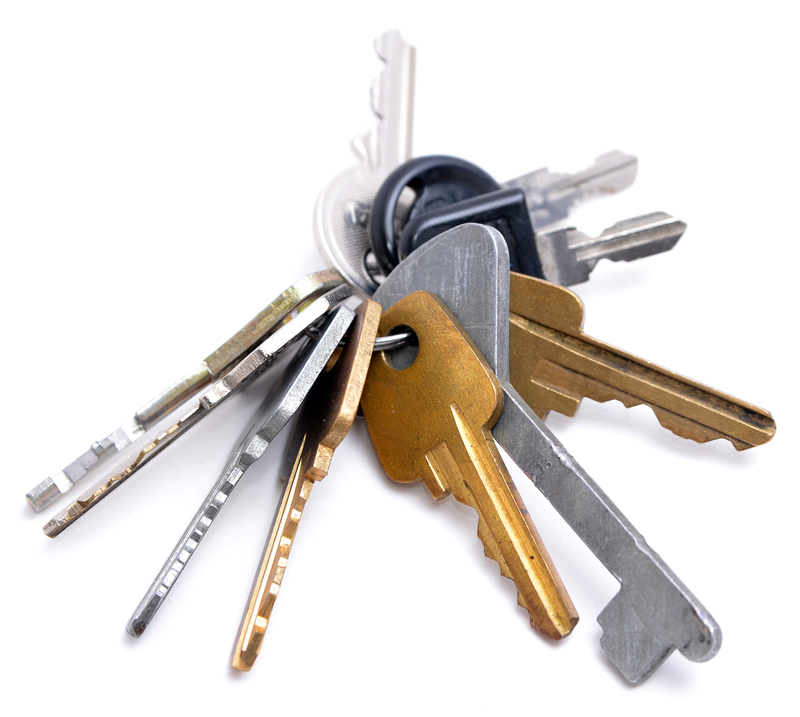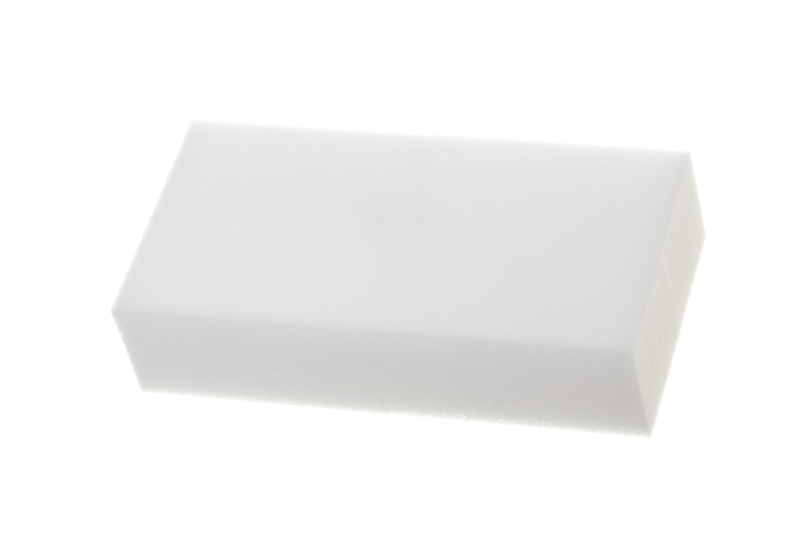The Definitive Guide to Jewellery Cleaning Excellence
Posted on 22/08/2025
The Definitive Guide to Jewellery Cleaning Excellence
Jewellery is more than adornment--it's a reflection of style, a symbol of affection, and often, a treasured heirloom. Over time, however, even the most exquisite pieces lose their lustre. Dirt, oils, moisture, and aging can diminish their shine and beauty. Welcome to The Definitive Guide to Jewellery Cleaning Excellence, where you'll learn everything you need to know to maintain and restore your favorite pieces to their original brilliance.
Why Is Proper Jewellery Cleaning Important?
Regular jewellery cleaning is vital not only for maintaining appearance but also for ensuring longevity. Over time, gems and metals collect residue, and if neglected, these deposits can cause permanent damage or dullness. Proper care and attention can preserve your jewellery for generations to come, making cleaning excellence an essential part of ownership.
- Prevents Damage: Dirt and grime can scratch delicate surfaces.
- Enhances Appearance: Clean pieces sparkle and draw attention.
- Increases Longevity: Prevents structural deterioration and long-term wear.
- Keeps Sentiment Alive: Well-maintained jewellery holds emotional and financial value.

Understanding Your Jewellery: Materials and Types
Before embarking on any jewellery cleaning routine, it's crucial to understand the composition of your pieces. The methods you use for a diamond ring differ significantly from those suitable for a pearl necklace or a gold bracelet.
Common Jewellery Materials
- Gold: Resistant to tarnish but can scratch easily.
- Silver: Prone to tarnishing and requires specific care.
- Platinum: Durable but can dull with residue build-up.
- Diamonds & Precious Stones: Extremely hard, but grime collects under settings.
- Pearls: Organic and delicate, susceptible to acids and scratches.
- Costume Jewellery: Often plated and requires gentle treatment.
Essential Tools for Achieving Jewellery Cleaning Excellence
Achieving professional-level results at home is possible with the right equipment. Here are the tools you'll need for superior jewellery maintenance:
- Soft-bristled toothbrush
- Microfiber or lint-free cloths
- Mild dish soap
- Bowl of lukewarm water
- Ammonia solution (for hard stones only)
- Jewellery polishing cloth
- Jewellery-specific cleaner (with proper certifications)
- Ultrasonic cleaner (for certain types only)
Always verify that any product or method you use is safe for your specific jewellery type. When in doubt, consult an expert.
The Ultimate Jewellery Cleaning Process: Step-by-Step Guides
Every type of jewellery requires a unique approach to cleaning. Here are detailed, step-by-step guides for achieving top-tier jewellery cleanliness and brilliance at home:
Cleaning Gold Jewellery
- Fill a small bowl with lukewarm water and a few drops of mild dish soap.
- Soak gold pieces for 15-20 minutes.
- Gently brush with a soft-bristled toothbrush, paying attention to crevices.
- Rinse thoroughly in clean water.
- Pat dry with a lint-free cloth and allow to air dry completely.
Tip: Avoid harsh chemicals or abrasive materials, which can scratch gold surfaces.
Shining Silver Jewellery
- Prepare a solution of warm water and mild soap.
- Soak silver jewellery for 10 minutes.
- Use a soft cloth or brush to clean gently, especially in detailed areas.
- For heavy tarnish, use a silver polish cloth or a paste of baking soda and water.
- Rinse and dry thoroughly.
Note: Never use regular household polish or abrasive pads, as these can cause irreversible damage.
Taking Care of Diamonds and Precious Gemstones
- Soak in a mixture of ammonia (one part) and water (six parts) for a few minutes.
- Brush with a toothbrush under the setting and around the stone.
- Rinse well with water to remove any residue.
- Dry with a soft, clean cloth.
Caution: Do not use this solution on porous stones like opals, emeralds, or pearls, as ammonia can harm them.
Pearl and Delicate Stone Jewellery
Pearls and soft stones require the utmost care:
- Wipe gently with a soft, damp cloth after each wear.
- Never soak pearls or expose them to harsh chemicals.
- Store them flat in a soft pouch to prevent scratching.
For thorough cleaning, seek a professional jeweller to avoid damage.
Maintaining Costume Jewellery
- Use a dry, soft cloth to remove surface dust.
- If necessary, lightly dampen the cloth but avoid soaking or using soap.
- Ensure pieces are thoroughly dried immediately after cleaning.
Advanced Methods: Professional Jewellery Cleaning Techniques
For a truly flawless jewellery cleaning experience, consider periodic professional maintenance. Jewellers use specialized equipment and solutions that are often not available for home use:
- Ultrasonic Cleaning: Uses high-frequency sound waves in liquid to remove dirt from intricate settings.
- Steam Cleaning: High-pressure steam safely cleans sturdy gems and metals.
- Electrolytic Cleaning: For tough tarnish on silver, a mild electric current helps reverse the tarnishing process.
Important: Not all jewellery types are suitable for these methods. Avoid ultrasonic cleaning for pearls, opals, and fragile stones.
Do's and Don'ts of Jewellery Cleaning
- Do check settings and clasps for loose stones before cleaning.
- Don't use toothpaste or baking soda on soft or porous stones.
- Do use only soft materials to prevent scratching.
- Don't mix different pieces while cleaning--they can scratch each other.
- Do clean regularly, but avoid over-cleaning which can weaken settings.
- Don't expose jewellery to harsh chemicals, including bleach, acetone, and chlorine.
How Often Should You Clean Your Jewellery?
Optimal jewellery cleaning frequency depends on usage, environment, and material:
- Everyday jewellery: Quick clean every couple of weeks, deep clean monthly.
- Occasional-wear jewellery: Clean after each use, or every few months.
- Heirloom or delicate pieces: Annual professional cleaning.
Regular preventative care keeps your gems sparkling longer and reduces the need for intensive restoration.
How to Store Jewellery to Keep it Clean
Proper storage is as important as jewellery cleanliness. Here's how to prevent tarnish, tangling, and dust accumulation:
- Store pieces in individual soft pouches or lined compartments.
- Keep them dry and away from direct sunlight.
- Use anti-tarnish strips for silver jewellery.
- Separate pearls and soft stones to prevent scratching.
- Consider a jewellery box with humidity control if you live in a damp climate.
By ensuring each piece is well-protected, you minimize the frequency and intensity of required cleaning.
Eco-Friendly and DIY Jewellery Cleaning Solutions
If you prefer green alternatives, several household items can clean jewellery safely and effectively:
- Baking Soda: Can be used as a gentle paste (but avoid on soft stones).
- Vinegar: Use with caution on diamonds and solid gold only.
- Beer and Club Soda: Known to add shine to gold.
- Seltzer Water: Excellent for soaking precious stones.
Always research the compatibility of DIY cleaners based on your jewellery type.
Frequently Asked Questions About Jewellery Cleaning Excellence
Can I use household cleaners for my jewellery?
No, most household cleaners are too harsh and may damage or discolour your jewellery. Stick to mild soaps or jewellery-specific solutions.
What's the safest jewellery to clean at home?
Solid gold, platinum, and diamonds are quite safe with mild soap and water. Pearls, costume jewellery, and emeralds should be handled with extreme care or left to professionals.
How can I remove stubborn tarnish from silver?
Specialized polishing cloths or a baking soda paste often helps, but for heavy tarnish, professional cleaning is best.
Why does my jewellery lose its shine, even after cleaning?
This may indicate micro-scratches, worn settings, or residue that's not easily removed at home. A professional polish may be required.
When Should I Seek Professional Jewellery Cleaning?
- For intricate or antique pieces
- If settings are loose or damaged
- With pearls, opals, and soft stones
- When at-home methods don't restore brilliance
Annual inspections and cleanings from a trusted jeweller extend the life and beauty of your collection.

Jewellery Cleaning Myths: Separating Fact from Fiction
- Toothpaste is safe for all jewellery. False: It's abrasive and can scratch most materials.
- All gems are durable in ultrasonic cleaners. False: Some stones can fracture or fade.
- Baking soda is always safe. False: It can damage soft or treated stones.
- Frequent cleaning is harmful. Not if done gently and with the correct methods!
Your Path to Jewellery Cleaning Excellence
With the right knowledge, consistency, and tools, anyone can achieve jewellery cleaning excellence. Take time to understand your pieces, choose the best methods, and never hesitate to consult a trusted professional for delicate or valuable items. By adopting these best practices, you'll ensure your jewellery remains a stunning testament to your history and style for years to come.
Ready to elevate your jewellery care routine? Start today and rediscover the dazzling beauty of your cherished pieces--their lasting brilliance is worth every effort!
Latest Posts
How to Protect Your Bathroom from Mold Invasions
Can Steam Be the Secret to Your Leather Sofa's Longevity
Your End of Tenancy House Cleaning Checklist for a Stress-Free Move



